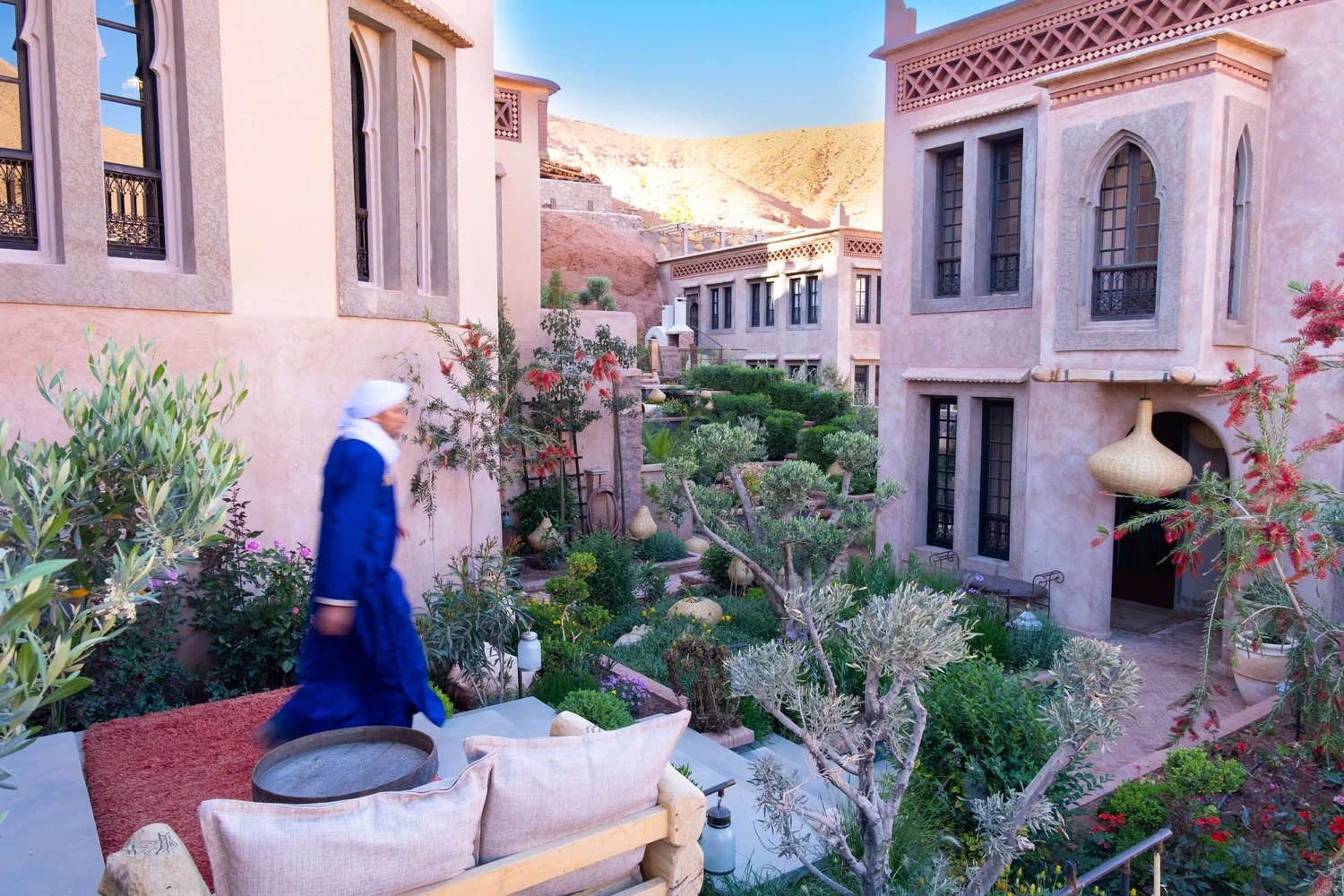
The Rhythms of Morocco – Exploring Traditional Moroccan Music
Learn about the diverse sounds of Moroccan music, from Andalusian melodies and Berber chants to Gnawa rhythms and desert blues.
Morocco is a country of vibrant colors, flavors, and rhythms. Just as the landscapes shift from ocean to mountains to desert, the country’s music reflects its diversity, shaped by centuries of cultural exchange. From the soulful chants of the Atlas Mountains to the spiritual rhythms of Gnawa and the refined notes of Andalusian music, Moroccan music is both a cultural treasure and a living art form.
Known as al-âla, Andalusian music arrived in Morocco with the Moors who migrated from Spain centuries ago. Performed with lutes, violins, and ouds, it blends poetry with sophisticated melodies. Today, cities like Fez and Tetouan remain cultural hubs where Andalusian orchestras keep this refined tradition alive, often during festivals and special events.
In the High Atlas, Middle Atlas, and Rif mountains, Berber (Amazigh) music has long been a way to tell stories, celebrate harvests, and mark life’s milestones. One of the most famous Berber traditions is Ahidous, a communal dance and song performed by men and women standing in a circle, accompanied by rhythmic drumming on the bendir. This performance represents unity and harmony, often seen at weddings and village gatherings. Festivals in towns like Imilchil or Khenifra are perfect places to witness Ahidous in its authentic form.
Perhaps the most globally recognized Moroccan music, Gnawa combines African, Berber, and Sufi traditions. With the guembri (three-stringed bass lute) and metallic qraqeb (castanets), Gnawa musicians create hypnotic rhythms used in healing ceremonies and spiritual gatherings. Every June, the Essaouira Gnawa and World Music Festival brings international attention to this powerful tradition.
Literally meaning “popular,” Chaabi is played at weddings, celebrations, and local gatherings. With lively rhythms and catchy lyrics, it’s the soundtrack of Moroccan social life. You’ll often hear Chaabi in Marrakech’s Jemaa el-Fna Square, where street performers gather nightly to entertain locals and visitors alike.
In southern Morocco, near Merzouga and Zagora, the desert echoes with Saharan rhythms influenced by nomadic tribes and neighboring Mali and Mauritania. Known as “desert blues,” these soulful melodies connect listeners to the vast expanse of the Sahara.
While deeply rooted in tradition, Morocco’s music scene has also embraced modern genres. From Moroccan hip-hop to fusion bands blending Gnawa with jazz or electronic music, the country’s younger generation is innovating while honoring heritage. Artists like Nass El Ghiwane, Oum, and Hoba Hoba Spirit have brought Moroccan music to international stages.
On our journeys, we connect travelers with authentic musical experiences—from Gnawa evenings in Essaouira to Berber village celebrations in the Atlas Mountains. Whether you’re wandering through Fez during a festival or sharing songs with nomads under Saharan stars, Morocco’s music will stay with you long after your journey ends.
